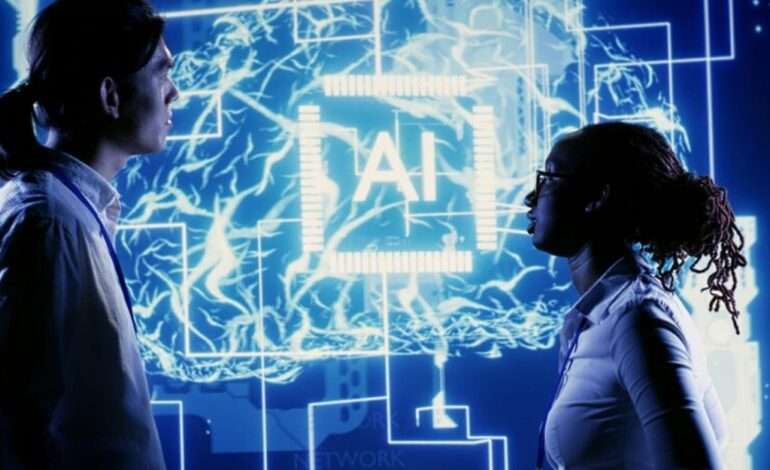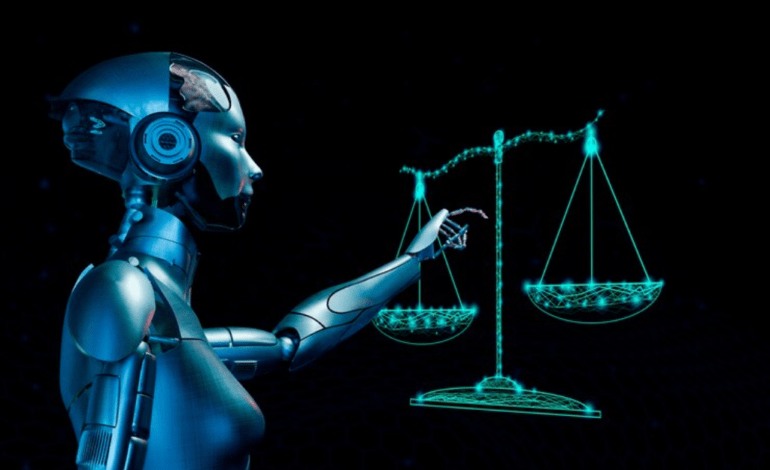
Role of AI In Information Technology
AI In Information Technology (IT) seeks to spur the expansion of companies that rely on information systems in Industry 4.0. Aspiration to transform IT systems into intelligent systems and bring AI back to prominence in the IT industry.
Artificial intelligence holds a prominent position within the realm of information technology as it primarily concerns itself with computers, software, and data transmission networks.
What is AI In Information Technology?
Artificial intelligence, for short, is a subfield of computer science that aims to create machines capable of performing tasks typically requiring human intervention, such as (but not limited to) perception; speech recognition and production; and learning from examples like images, text, etc.
Computers powered by AI can perform specific tasks that they have been trained to do by analyzing enormous volumes of data and interpreting patterns in the same.

Information Technology (IT) Examples
IT manages the creation of online banking systems and helps in maintaining those systems. Your customers utilize these technologies to have access to their accounts securely, check balances, transfer money from one account to another,, or make bill payments online.
Cloud computing
This is more like an invention in IT and Cloud Computing brings you the much-required flexibility for support. The rules apply to software, storage, and servers. Thanks to popular cloud platforms, such as Microsoft Azure, Google Cloud, or Amazon Web Services (AWS), businesses can reduce their infrastructure costs and scale operations while still deploying applications globally.
CRM ( Customer Relationship Management )
CRM systems (information technology solutions) are tools that businesses use for managing their relationships with present and future customers. They handle sales leads and track client information, as well as facilitate communication between teams.
Salesforce and HubSpot are grooming CRM programs assisting in automating marketing, sales as well as support interactions that enhance customer engagement and the productivity of your selling process.
AI in Software Development
The skill of training and modifying AI for a variety of uses has been perfected by software developers. Modern AI is generally unmatched in its capacity for data mining, analysis, and categorization.

These features also enable Artificial Intelligence to be a terrific helper, able to comprehend requests and provide answers. These are some instances of AI technologies being used in software development.
IT asset management
Artificial intelligence (AI), through IT asset management, is a key enabler in effectively managing and maximizing an organization’s IT investments. IT assets, including hardware, software, and licenses, are tracked and managed during their whole lifecycle in this technique.
AI powers predictive maintenance forecasting, usage trends, and even asset discovery. Creating the inventory lists will help ensure your IT team is not overbuying resources, resulting in lower costs and a greater return on investment.
How Do Information Technology and Artificial Intelligence Interact?
AI is unquestionably the first step in the IT industry’s transformation of its systems into intelligent solutions for scalably implementing IT functions. But in the context of IT, what makes them so wise? The two main components of artificial intelligence are robotic process automation (RPA) software and optimization.

Robotic process automation, when coupled with artificial intelligence, is taking the place of IT operations and duties to automate data processing and decision-making. The main advantage? Businesses may free up time for people to work on more mentally demanding jobs by automating routine business processes!
Will AI Replace IT?
Fears that artificial intelligence will render many occupations outdated and irrelevant are a major factor in some organization’s reluctance to adopt this technology. These expressed fears that “robots” will replace humans are not entirely baseless because improved AI is more suitable for some tasks, especially those that need large-scale data analysis.

The latter has enabled the super-intelligent AIs to carry out certain tasks faster and more effectively than ever before, because they never have to take a respite/recuperation.
IT Infrastructure Management with AI
Artificial Intelligence: An Ongoing Revolution in IT Infrastructure AI enables IT staff to manage their environments more efficiently and keeporganizations a step ahead of cyber threats by automating activities, boostingproductivity, and strengthening security.
Conclusion
AI’s ability to automate processes, increase productivity, strengthen security, and provide a host of other advantages is having a significant impact on IT infrastructure.This is why the ability of IT folks to better secure their companies from attacks and run clean environments.
The future may hold even more revolutionary implementations of AI and workload automation within IT infrastructure. C-suite decision-makers should consider this in their IT investments and management infrastructure strategies as well.






